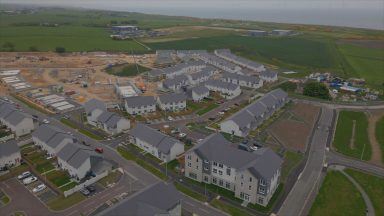Permanent job appointments across Scotland in March fell at the fastest rate since the global financial crash, according to a study.
The latest Royal Bank of Scotland figures show the country saw the steepest decline last month in these job starts since April 2009, with a drop of 10.7 points from the “no change” base rate of 50.
Permanent job placements in April 2009 had a rating of 33.6, some 16.4 points below the 50 standard.
Temporary billings also fell 19.3 points – the steepest rate on record – as the Scottish jobs market was hit by the coronavirus pandemic.
Businesses across the country have been ordered to shut to help reduce the rate of the virus spreading.
Sebastian Burnside, chief economist at Royal Bank of Scotland, said: “The Covid-19 pandemic weighed heavily on the Scottish labour market in March.
“Permanent staff placements fell at the steepest rate since the global financial crisis over a decade ago while temp billings declined at the sharpest rate since data collection began over 17 years ago.
“At the same time, demand for both permanent and short-term staff declined, with panellists reporting that firms had stopped hiring amid the coronavirus pandemic.
“The reduction in permanent vacancies was the first since September 2010 while the fall in temp staff demand was the fastest since mid-2009.
“Overall, latest data highlighted the substantial impact of emergency measures and shutdowns that have taken place due to the Covid-19 outbreak and the vital importance of the government schemes put in place to safeguard livelihoods during this exceptional time.”
The rate of decline in demand for permanent staff was described as “mild overall” and softer than that recorded at the UK level.
A fall in temporary worker vacancies in Scotland was part of a wider UK trend, according to the study, although the fall in north of the border “outstripped” that seen at the UK level.
Starting salaries awarded to permanent joiners continued to increase during March, as has been the case in each month for over seven years.
However, the rate of wage inflation was the softest for three months and only mild.
The average hourly pay rates for temporary staff rose further, with the uptick the quickest since last October.
Wage inflation remained softer than the long-run series average.
The report, compiled by IHS Markit, is based on a monthly survey of around 100 recruitment and employment consultants.
Follow STV News on WhatsApp
Scan the QR code on your mobile device for all the latest news from around the country
























